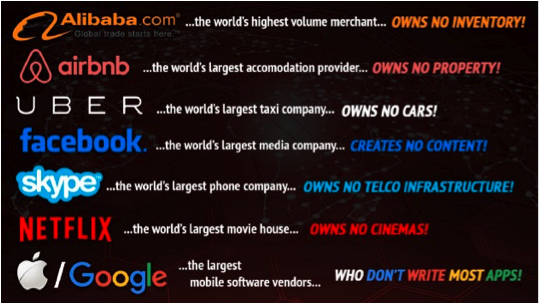The inverted firm, licensing programs and the changing role of IP
The way how companies generate value changed a lot during the last decade due to the power of the digital transformation and the emergence of digital platforms. Those platforms are driven by network effects, where each network partner creates value in and for the network making it even more attractive for new partners to join the network. This way platform companies emerged with a very small number of own employees but a huge revenue due to value generated by the numerous network partners and platform users. Examples can be found in many industries like the platform Airbnb which owns no hotels, uber which owns no taxis, facebook which produces no content etc.

A concept which explains that shift from internal to external value generation is the “inverted firm”. Network effects cause firms to “invert” shifting production from inside the firm to outside of it. Network effects cannot scale inside as easily as outside. There are simply more customers than employees. If users are to create value for other users, then they must be aided and rewarded for doing so. This means firms shift from vertical integration to open orchestration. Platform firms do not merely create value themselves; they orchestrate value creation by outsiders and for that, they use IP.
One practical example for the use of IP to create a big network of network partners can be found in the license program by Signify (Philips lighting). Here, Signify is licensing out their technology to enable network partners to build their own innovative lighting solutions and create new markets from which the whole lighting eco-system can profit in the end. An example for the IP protected use case “interact office” can be found in the case study video.
Cannot open the video? Please click: https://youtu.be/Adgl1_odutY
When you want to learn how to develop and protect such innovative business models and use cases have a look at our Certified University course on “Integrated IP and innovation management” and when you are interested in the concepts of digital platforms and eco-systems you might have a look at our course on “IP in the Industry 4.0”.



